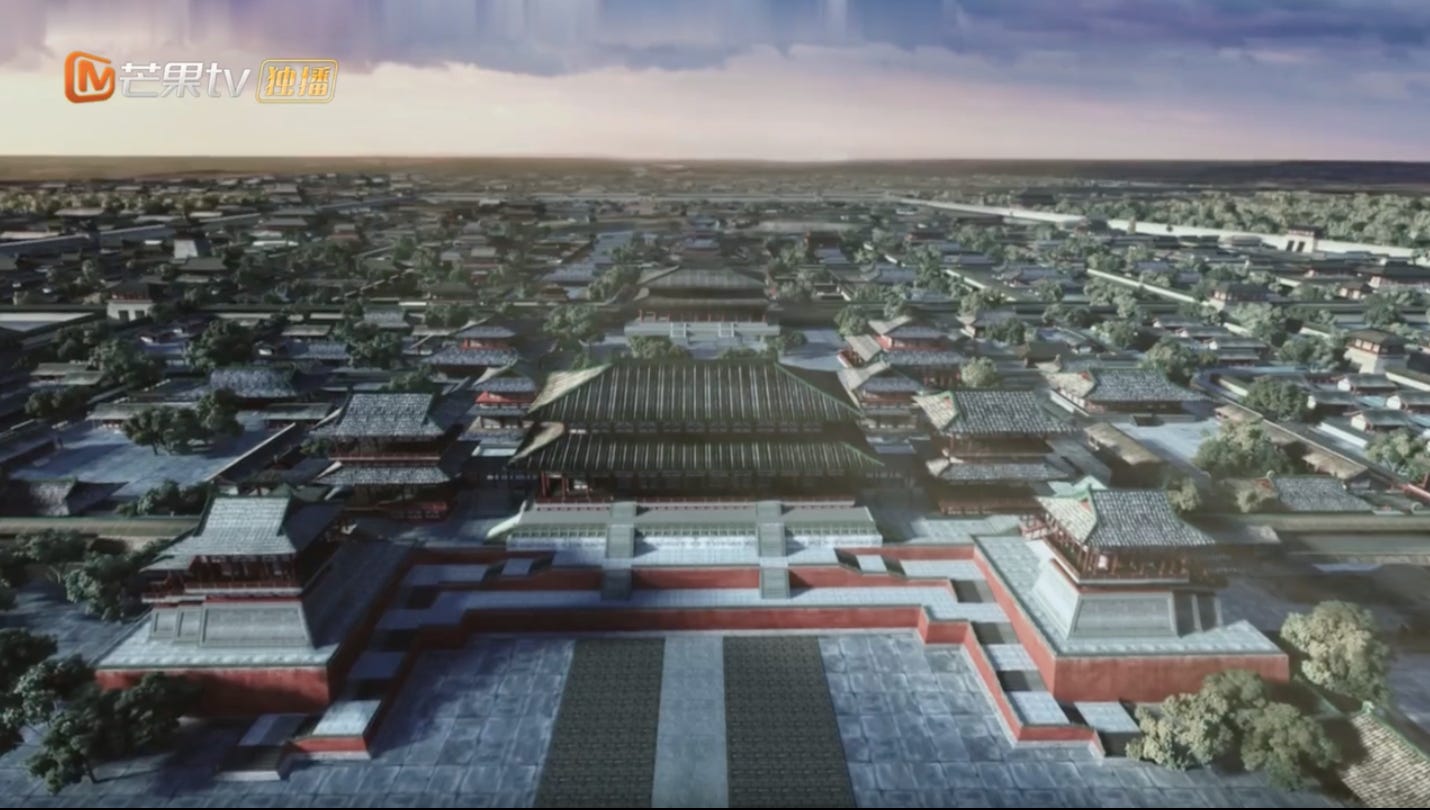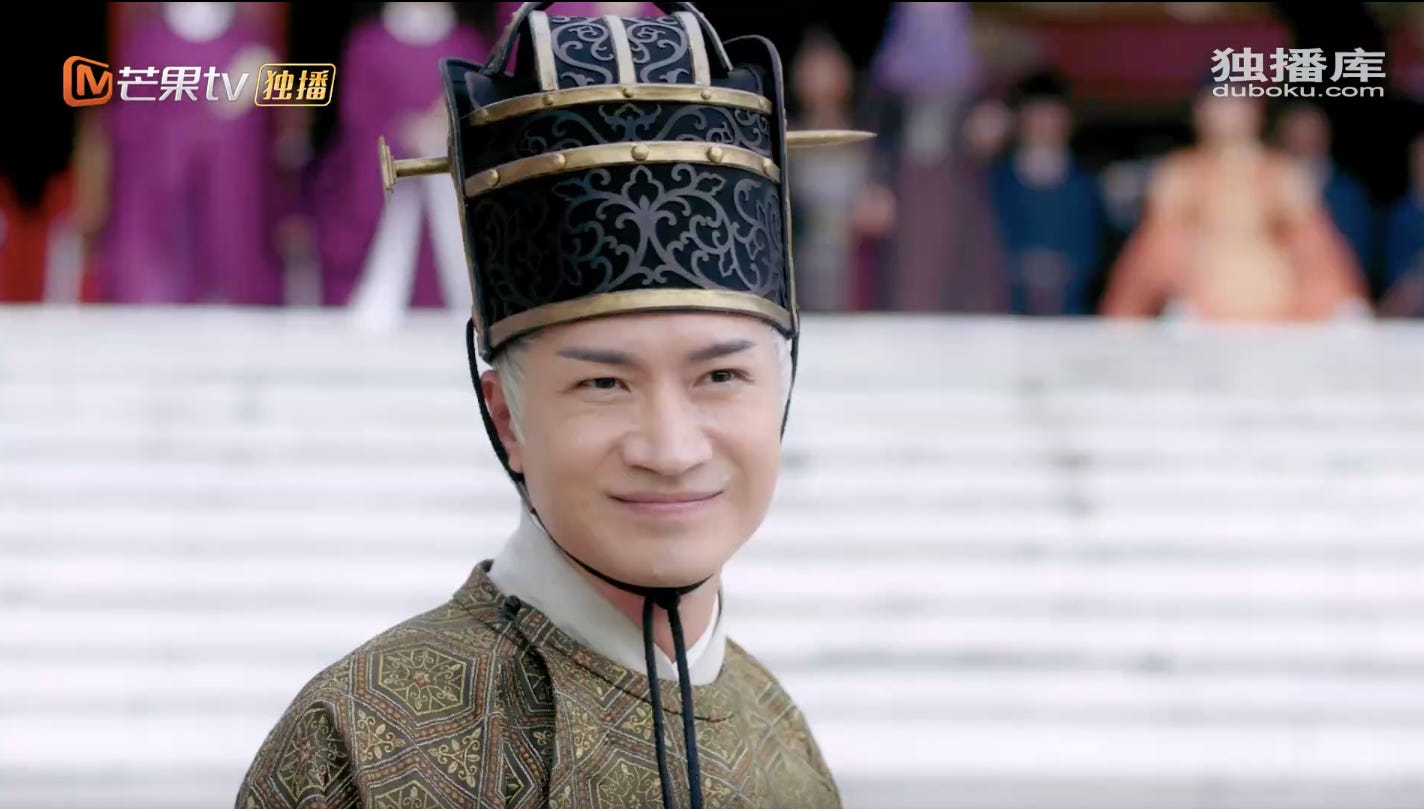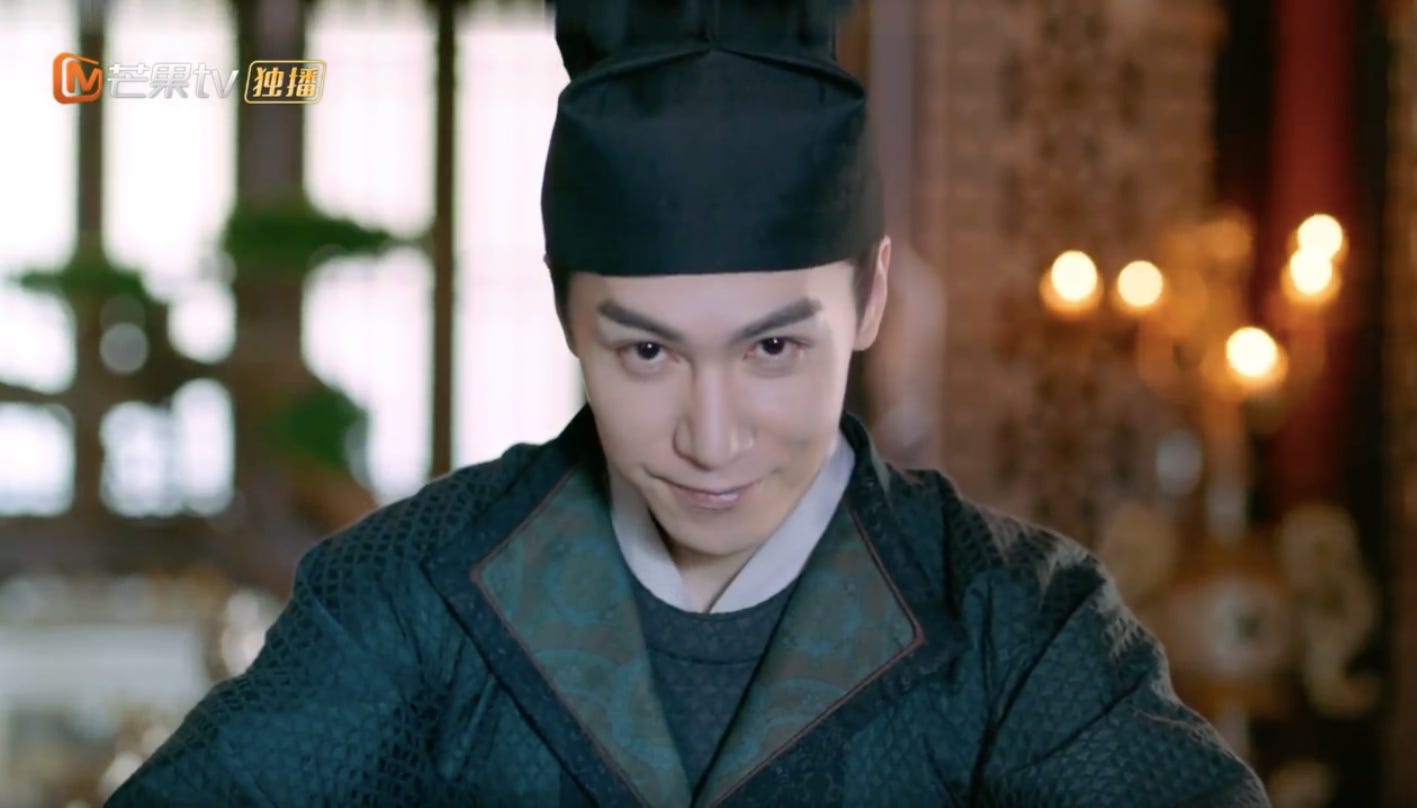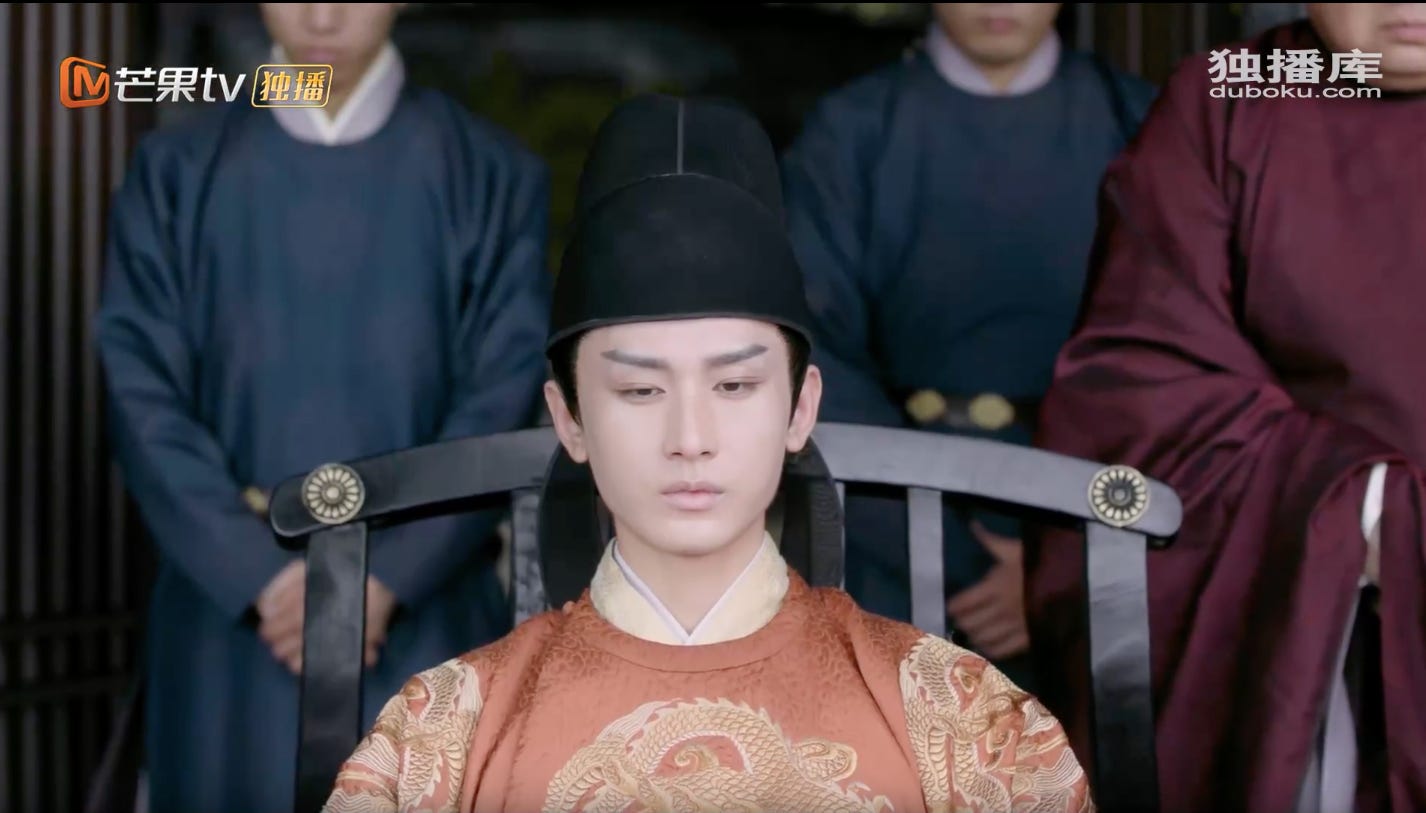Everyone has their favourites and it is after all only the third day of September but I don’t think there’s much doubt in my mind that I’ve stumbled onto a unexpected gold mine with this series. So much so that I’m tempted even before the year’s ended to declare it my favourite C drama of the year. Tempted but uncommitted. It’s becoming something of a habit with me and C dramas this year. The less hype surrounding a drama, the better (or the more my cup of tea) it seems to be. As I’ve said I came into it with no prior experience with most of the actors and was completely sold on the plot in a matter of episodes. What 2020 and 2021 have cemented in my mind is that it doesn’t follow that big names headlining any drama is a guarantee of success and quality. Especially if it comes packaged with a mediocre script. Leads Cheng Yi and Zhang Yuxi might be known to many from other projects but my interest was always the story first and foremost. I was helped in making the decision to jump on the bandwagon by the trailers giving me the distinct impression that this could be a serious palace drama. And serious seemed to be an increasingly rare commodity from Cdramaland.
Needless to say, the show has never disappointed in that regard. It is true that in those early days when the leads were going through the obligatory adjustment period the odd rom com trope were thrown in for good measure but I wouldn’t say that there was an over-reliance of them to carry the romance. Ultimately what wins Cheng Ruoyu the heart of a depressed, suspicious emperor is her single-minded devotion to the office and the man.
Like the K drama Beyond Evil from the first half of the year, the main reason why the show is consistently engaging is due to its sophisticated exploration of evil. Stand By Me despite its seemingly congenial title, is a study on the innately corrupting influence of evil. This is poignantly and incisively presented through the spectrum of “villainy” as we are invited to look at key events past and present, from a variety of perspectives. This is achieved through a balanced and sympathetic depiction of character predicaments. Much to its credit the show avoids trivialising the effects of evil exposing its manifestations as a kind of seductive power that promises much, delivers short-term gratification and devastates the soul.
The most potent symbol of this pernicious power is personified in Qiu Ziliang who at times comes across as a moustache twirling villain except as a eunuch a moustache is nowhere to be seen. What he does have are pithy pieces of advice that he doles out like a man confident of his status. He is an incarnation of Mephistopheles teasing, luring and threatening. At various times in the narrative men and women sell their souls to him because he offers power that they need in the short-term to achieve their goals. He’s a stepping stone, a means to an end. Some of them do it with a long view to undermine the hold he has on power at the highest levels. He is a creature that has come to hold such power because he was allowed a free run. Meant to be a servant of the throne, he became the master of it, much to the detriment of every single soul in the land from the top down. He possesses no sense of responsibility to the country and its people because his only consistent goal is his own political survival against internal attacks.
The litany of those who attempt to borrow his power is a long one. The price that Qi Yan, the incumbent monarch pays for kowtowing to Mephistopheles sees him on the path of widespread condemnation and eventual damnation. It is a burden that he feels that he must bear for riding on the coattails of a man he loathes so he too can survive long enough to rid the world of this “cancer” that has him in his grip. Qi Yan’s house arrest and physical decline is how the devil’s instrument ensures that there’s no opportunity for mischief against him. The gradual weakening of Qi Yan is built on the desire of rendering him completely ineffective thus diffusing a potential attack. For a prince who once led a carefree life, who kept away from the heady politics that his elder brother was embroiled in, it’s a cause of deep angst. In an act of mental self-flagellation, he pulls out blood-stained handkerchiefs in his lowest moments to remind himself of his duty to the dead who had pinned their final hopes on him.
On a similar trajectory as Qi Yan is Qiu Yanzhi aka Wang Ruoqing who is out for revenge for the deaths of her grandfather and sister in the aftermath of the Morning Dew rebellion. She’s done a deal with Mephistopheles to learn his tricks with the goal of using them against him when the time is right. It’s an incredible piece of theatre that she’s enacted but it too exacts a toll on her soul. She tells herself that this is the price that has to be paid even if she ends up in hell for being the devil’s pawn. It’s also a case of survival at the cost of all else in order to… as the combatants all say repeatedly… to win.
The chess motif permeates the totality of the storytelling. In a climate of suspicion, the main strategists see themselves first and foremost as competitors in a larger chess game because they don’t know exactly who they’re playing against. The toxicity of evil is such that no one can trust each other and after some rambunctious tit for tat, one is left thinking that those who are supposedly on the right side of history might be better off working cooperatively rather than as adversaries. Those with the seemingly well-intentioned agenda to put Prince Guang on the throne (partially because they don’t have access to the entire puzzle, partially because of their own avarice) or prioritize personal grudge, are usually more of a hindrance than a help. The show doesn’t skirt the complexity of motives especially when the participants in this winner-takes-all game go begging to the eunuch for short-term gains.
The price of exploiting evil to do good gets a decent run in the drama. It isn’t just that the consequences are men and women losing their minds or moral bearings to political expediency but it also leads one on the path to paranoia and cynicism where every person is a pawn, a calculation that can be eliminated at will. A hubris… a certainty that leads to a moral blindness develops.
That’s why I think a character like Cheng Ruoyu is such an important counterpoint to all of this game playing. She’s a reminder that the high stakes game isn’t just about winning and losing or making the right moves. There’s a human element involved. Because she’s an outsider to this game, her moral bearings hold the line. She uses words like “good” and “bad” with down-to-earth simplicity — a reminder to the audience and to the other characters that despite the seemingly amoral doings of key characters, the universe in which they live is governed by natural law. There are consequences to making pacts with evil even with the best of intentions.
It’s not as if brains aren’t needed to win the game. The show affirms that the man or woman with the best laid plans definitely have an upperhand but it also wants to speak to the reality that scheming and manipulation without a moral compass is how evil corrupts absolutely. Hence Yu’er is the lifeline back out of the darkness. For all those who want to be on the side of right to stay the course and not lose themselves completely to the plotting and the scheming, Cheng Ruoyu is that candle light in a very dark place. Even Yanzhi says this: Wang Ruoling is the only person in this world who still knows what it is to have feelings. It doesn’t mean no one else has them but that Cheng Ruoyu who is genuine all throughout has an effect on people in a way that what seems like a weakness can be turned into an asset.
This is why as I’ve said previously, the romance works for me despite the seeming imbalance of skill sets. As Qi Yan himself acknowledges it was heaven’s will that the two of them have been inseparable despite the push and pull. She was a heaven-sent gift to him. His job was to protect her until her identity becomes widely known and because Yu’er loves him too, Yanzhi later sets aside her own misgivings to cooperate with him.
49 episodes seems like a long haul but it seldom feels that way. The show is always moving and there’s always a conversation that needs to be heard or a plot hatching somewhere in in the vicinity of Xing. I’ve lost count of the number of twists and turns. It’s a fine juggling act although not always helped by the sometimes choppy editing. However the storytelling soldiers on with its greatest clarity in the actions and words of the men and women who have to navigate territory around this world through all its inherent pitfalls. Victory comes at a cost for all and some will pay with their lives. There’s nothing fair in all of this. Simplistic notions of right and wrong are furiously contested and every kind of human emotion is on display justifiably or not. No one is a stranger to suffering because the world’s been turned upside down. Everyone knows how things should be but they don’t all agree on how to get there. Despite the lamentable state of things, there’s still a hopeful belief in bedrock principles of justice and an underlying concern for human flourishing.










Wow! I don't watch dramas or movies usually but I somehow saw a few clips of this 3 weeks ago and got so hooked that I had to watch all the eps. I found the links to your post on a forum and wow! Thank you for the insights.. There was so much I didn't catch while watching the show, that your posts showed me. Like Qi Yan taking out blood soaked fabric as a reminder part.. I just thought he wanted to see it because he was sad and I didn't understand the significance.. Thank you for the amazing posts! ❤️
I couldn’t agree more with you! It was a long run but it was worth it.